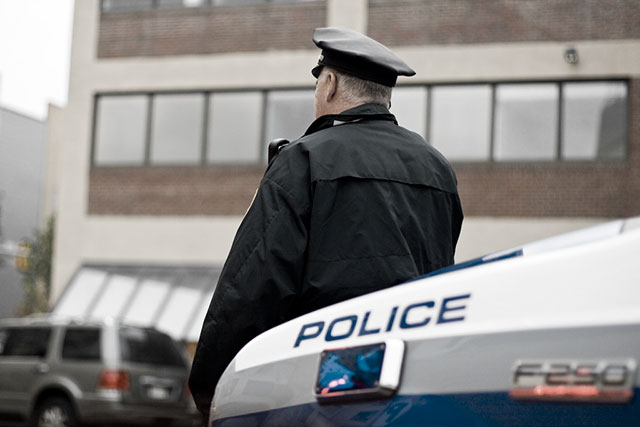
The Massachusetts Supreme Judicial Court ruled Tuesday that black men in Boston who avoid run-ins with police officers may be justifiably motivated by a desire to “avoid the recurring indignity of being racially profiled,” and their flight should not be automatically interpreted as evidence of “criminal activity.”
The ruling throws out an unlawful firearm possession conviction against Jimmy Warren, whose arrest nearly five years ago appears to be a case study in racial profiling.
In December 2011, police investigating an alleged burglary in the Roxbury neighborhood of Boston were told by witnesses that the suspects were three black men wearing a red hoodie, a black hoodie and dark clothing, respectively. It was not long before Warren and his friend fell under the suspicion of Boston police officer Luis Anjos. Tuesday’s ruling explains:
When Anjos spotted the defendant and his companion, he had a hunch that they might have been involved in the breaking and entering. He based his hunch on the time of night, the proximity to the breaking and entering, and the fit of the males to the “general description” provided by the victim. He decided “to figure out who they were and where they were coming from and possibly do [a field interrogation observation (FIO)].” He rolled down the passenger ‘s side window of the cruiser and yelled out, “Hey guys, wait a minute.” The two men made eye contact with Anjos, turned around, and jogged down a path into the park.
Warren was later apprehended and searched by police, who “found no contraband on his person,” according to the ruling. Immediately following the arrest, police spotted a .22 caliber firearm nearby, and Warren was eventually charged and convicted of illegally possessing the gun.
In its Tuesday ruling, the high court determined that police were not justified in stopping Warren. “Lacking any information about facial features, hairstyles, skin tone, height, weight, or other physical characteristics, the victim’s description ‘contribute nothing to the officers’ ability to distinguish the defendant from any other black male’ wearing dark clothes and a ‘hoodie’ in Roxbury,” the decision states.
In perhaps its most far-reaching determination, the court then argued that Warren and other black men in Boston may be justified in running from law enforcement, given the city’s poor track record with racial profiling:
We do not eliminate flight as a factor in the reasonable suspicion analysis whenever a black male is the subject of an investigatory stop. However, in such circumstances, flight is not necessarily probative of a suspect’s state of mind or consciousness of guilt. Rather, the finding that black males in Boston are disproportionately and repeatedly targeted for FIO [Field Interrogation and Observation] encounters suggests a reason for flight totally unrelated to consciousness of guilt. Such an individual, when approached by the police, might just as easily be motivated by the desire to avoid the recurring indignity of being racially profiled as by the desire to hide criminal activity. Given this reality for black males in the city of Boston, a judge should, in appropriate cases, consider the report’s findings in weighing flight as a factor in the reasonable suspicion calculus.
The text references a report released two years ago by the Massachusetts ACLU, which found that, while black people make up less than a quarter of the city’s population, they were targeted by 63 percent of all Boston police encounters with civilians between 2007 and 2010.
“Even after controlling for crime, Boston police officers were more likely to initiate police encounters in black neighborhoods and to initiate encounters with black people,” continues the report, which evaluates four years of police records. “Boston police gave essentially no justification for 75 percent of these encounters, simply listing ‘investigate person’ as the reason.”
Join us in defending the truth before it’s too late
The future of independent journalism is uncertain, and the consequences of losing it are too grave to ignore. To ensure Truthout remains safe, strong, and free, we need to raise $41,000 in the next 5 days. Every dollar raised goes directly toward the costs of producing news you can trust.
Please give what you can — because by supporting us with a tax-deductible donation, you’re not just preserving a source of news, you’re helping to safeguard what’s left of our democracy.